 |  |  |
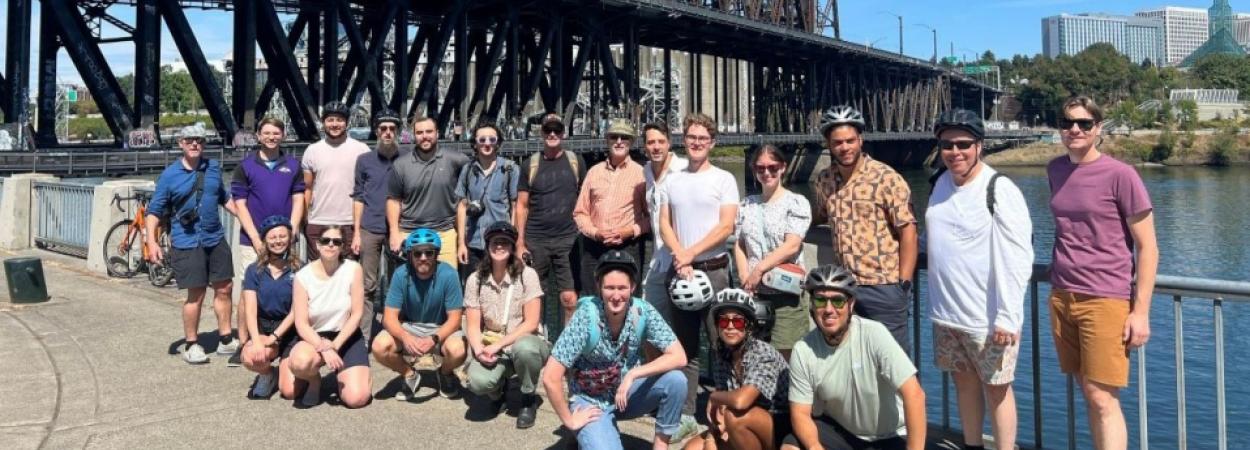
Our annual summer Bikeway Design workshop, offered through the Initiative for Bicycle and Pedestrian Innovation (IBPI), was held last August at Portland State University. Eighteen professionals attended, learning from local active transportation experts on topics including bicycle facility design, traffic engineering techniques that support active travel, and designing for suburban environments. Check out some photos from this year's workshop.
The week-long workshop also included field tours of bicycle infrastructure in Portland and its surrounding communities. The final day of the workshop, students convened in PSU's Engineering Building to confer together about design problems they were currently being challenged by at work, in their home communities.
One of this year's participants was Portlander Aaron Kuehn, the outgoing chair of BikeLoud PDX, a local bike advocacy nonprofit. Inspired by what h…
Read More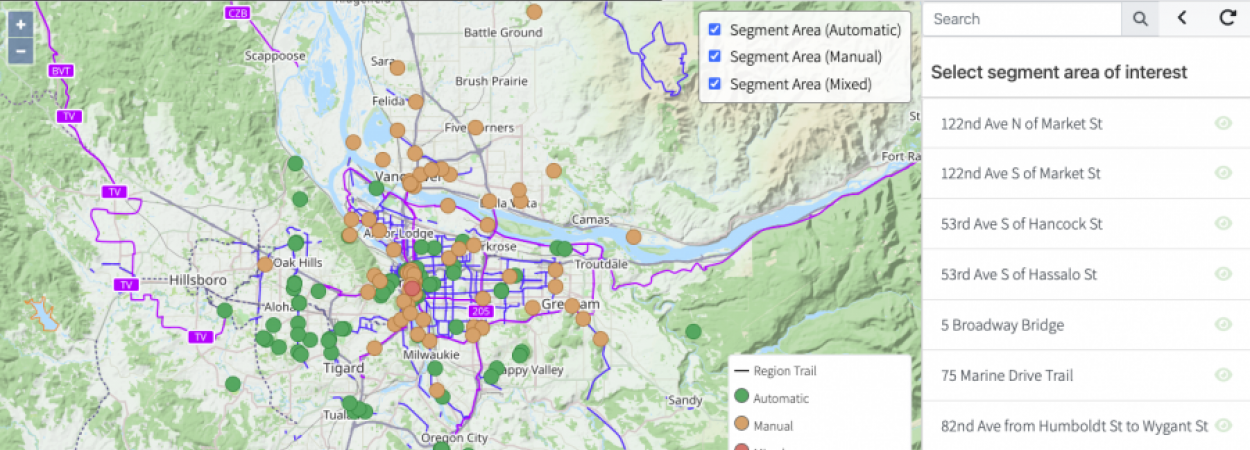
In recent years, cities and counties all across the United States have invested in bicycle and pedestrian counters. Having reliable data on non-motorized traffic can help jurisdictions make informed decisions about infrastructure investments, measure the effectiveness of biking and walking initiatives, and improve safety.
But having a bike-ped count program is just the beginning.
Once counts have been collected, cities face new challenges. How can multiple agencies share data among themselves? How can data be standardized and compared? And what is the most effective way to communicate what the numbers mean?
Enter Bike-Ped Portal, the comprehensive non-motorized data management system for manual and automated non-vehicular multi-modal counts housed at Portland State University (PSU). This specialized data lake and management system is designed to make sharing data—within an agency, with partners at other agenci…
Read More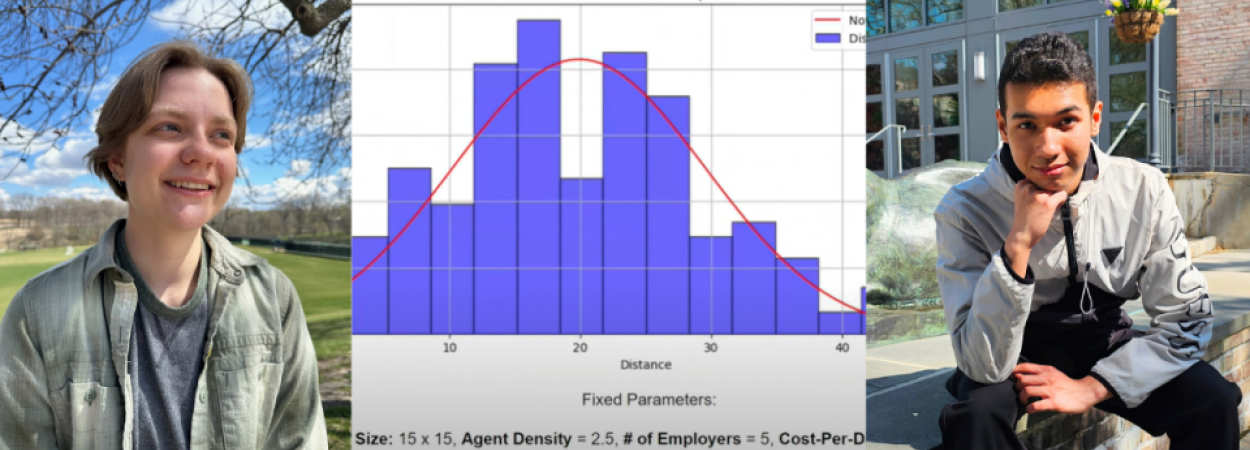
Last month at Portland State University (PSU), two students showcased their work on transportation topics in a Summer Research Symposium held by the Virtual Alternative Research Experience for Undergraduates (altREU) Site on Computational Modeling. The altREU program, led by PSU Engineering & Computer Science professor Christof Teuscher, is funded by the National Science Foundation (NSF) and offers undergraduates experience in designing, programming, and using computers to benefit society.
While students in the altREU program worked on subjects ranging from crime analysis to predicting stock market trends, two participants chose to focus their efforts on multimodal transportation. Linden Faye and Allie Hopper dedicated their time in the ten-week program to autonomous vehicles (AVs) and nonmotorized data, respectively. Learn more about their projects below, and join us in congratulating these two students on their e…
Read More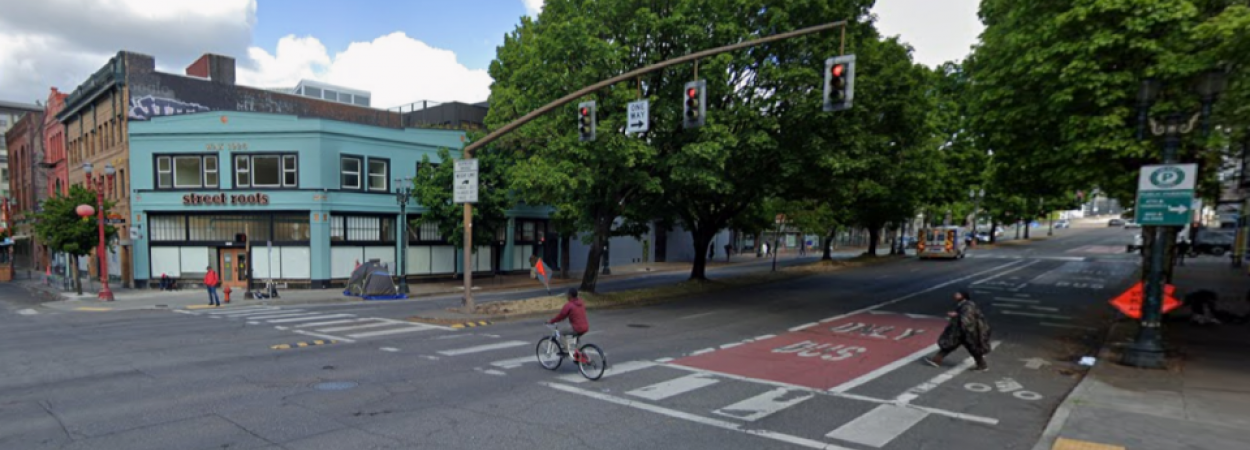
As plans move forward for an earthquake-ready replacement of Portland's Burnside Bridge, several Portland neighborhood associations and the Better Block PSU program are taking the opportunity to reimagine a segment of West Burnside street.
With bridge closure and construction anticipated to begin as early as 2026 and last for several years, the temporary period of reduced traffic on Burnside will offer a unique chance for the neighborhood to test out some designs and placemaking strategies aimed at making the area more people-friendly.
"Currently, West Burnside street acts as a barrier separating the northwest and southwest portions of the Central City from each other, and discouraging movement between them," said Xavier Stickler, chair of the Downtown Neighborhood Association's Land Use and Transportation Committee. He, along with Sean Sweat of the Pearl District Neighborhood Association and Mary…
Read More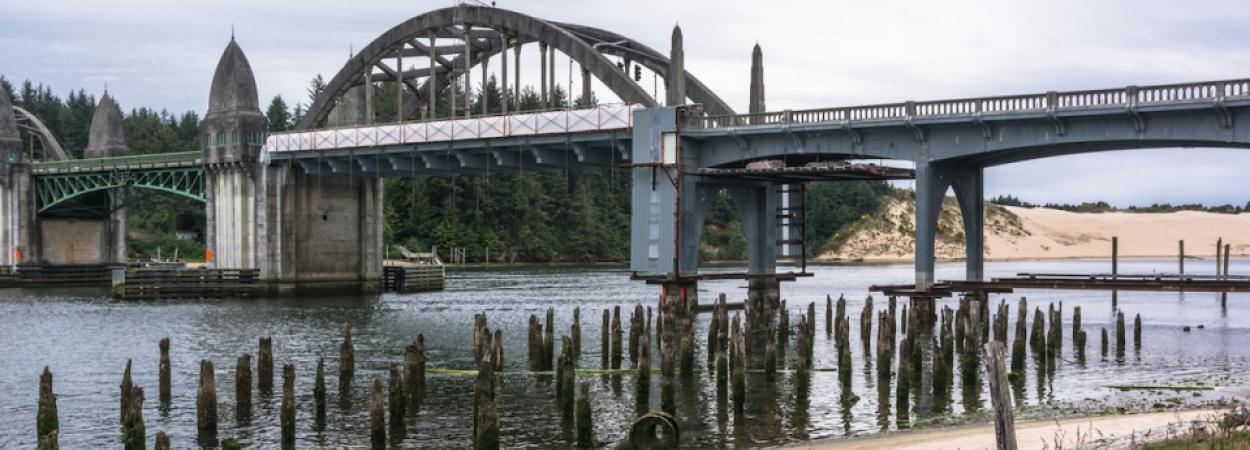
Transportation networks are a vital lifeline essential to the functionality of modern society. A newly published research report offers a new methodology for assessing transportation network vulnerability and resilience, with a particular focus on incorporating social vulnerability into the analysis.
Why? Vulnerable populations—such as people with low income, minorities, or seniors—could suffer higher levels of adverse impacts from disruptions. Road closures and other transportation network interruptions due to earthquakes, floods or other disasters may disproportionately affect these groups of people.
The research project, "Integrate Socioeconomic Vulnerability for Resilient Transportation Infrastructure Planning," by Liming Wang, John MacArthur, and Yu Xiao of Portland State University (PSU), addresses a critical gap by integrating socioeconomic vulnerability indicators into the evaluatio…
Read More